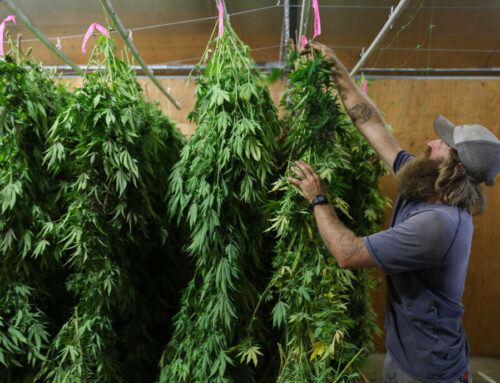Thailand’s Cannabis Industry Faces Major Shift with New Draft Law
In a significant move that could reshape the cannabis landscape in Thailand, the government is preparing to introduce a draft law aimed at curbing the sale of cannabis for adult use and refocusing the burgeoning industry towards medicinal purposes. This pivot comes after a period of rapid growth in the recreational cannabis sector, sparked by the 2022 decision to declassify cannabis as a narcotic, which led to the emergence of thousands of cannabis businesses across the country.
The proposed Cannabis and Hemp Act seeks to close the legal loopholes that have allowed the recreational cannabis market to thrive, instituting a license system for personal cultivation and enhancing police powers to enforce the law. Key provisions of the draft include strict regulations on the sale of smokable cannabis, limiting it to the medical market, and imposing fines and prison sentences for violations of the new legislation.
Pongchaiwat Jirayustienjinda, an associate at the law firm Tilleke & Gibbins, highlighted the draft’s aim to prohibit recreational use, emphasizing that the law is still under review, with its final form yet to be determined. The move mirrors Canada’s approach to controlling medical marijuana imports, raising questions about the impact on foreign direct investment and the appeal of Thailand’s cannabis market to international businesses.
Critics argue that the initial deregulation led to a “wild, wild, East” scenario, with the government struggling to impose order on the rapidly expanding industry. Nadon Chaichareon, CEO of Teera Group, points to the lack of proper regulations and governance, contrasting it with more established cannabis markets in the West.
The draft law proposes significant changes to licensing, cultivation, and sales, aiming to steer the industry back towards its original goals of promoting medical wellness and economic growth. It outlines specific criteria for business licensees, including Thai nationality and no recent convictions, and introduces prohibitions on adult-use sales, online sales, and unapproved street stalls.
Enforcement measures are set to be strengthened, with police given authority to search businesses and seize products if violations are detected. The draft also contemplates stiff penalties for illegal activities, including fines and imprisonment, signaling a strict stance against non-compliance.
As Thailand navigates these regulatory adjustments, the cannabis industry is at a crossroads, with stakeholders closely watching the legislative process. The outcome will likely have far-reaching implications for domestic businesses and international investors, shaping the future of cannabis in Thailand.



































